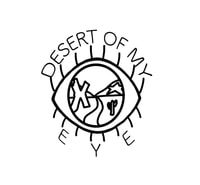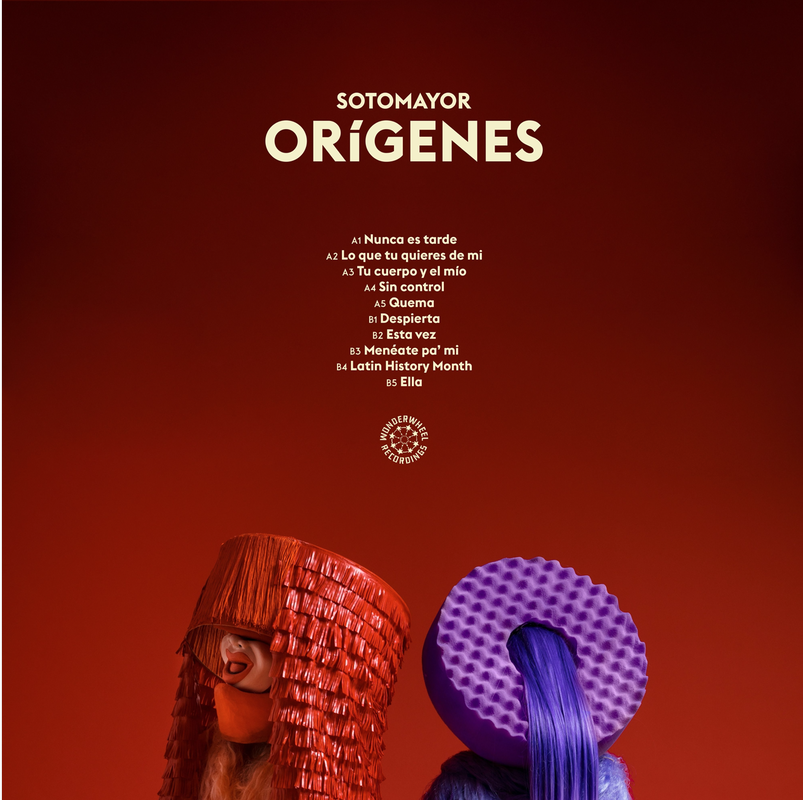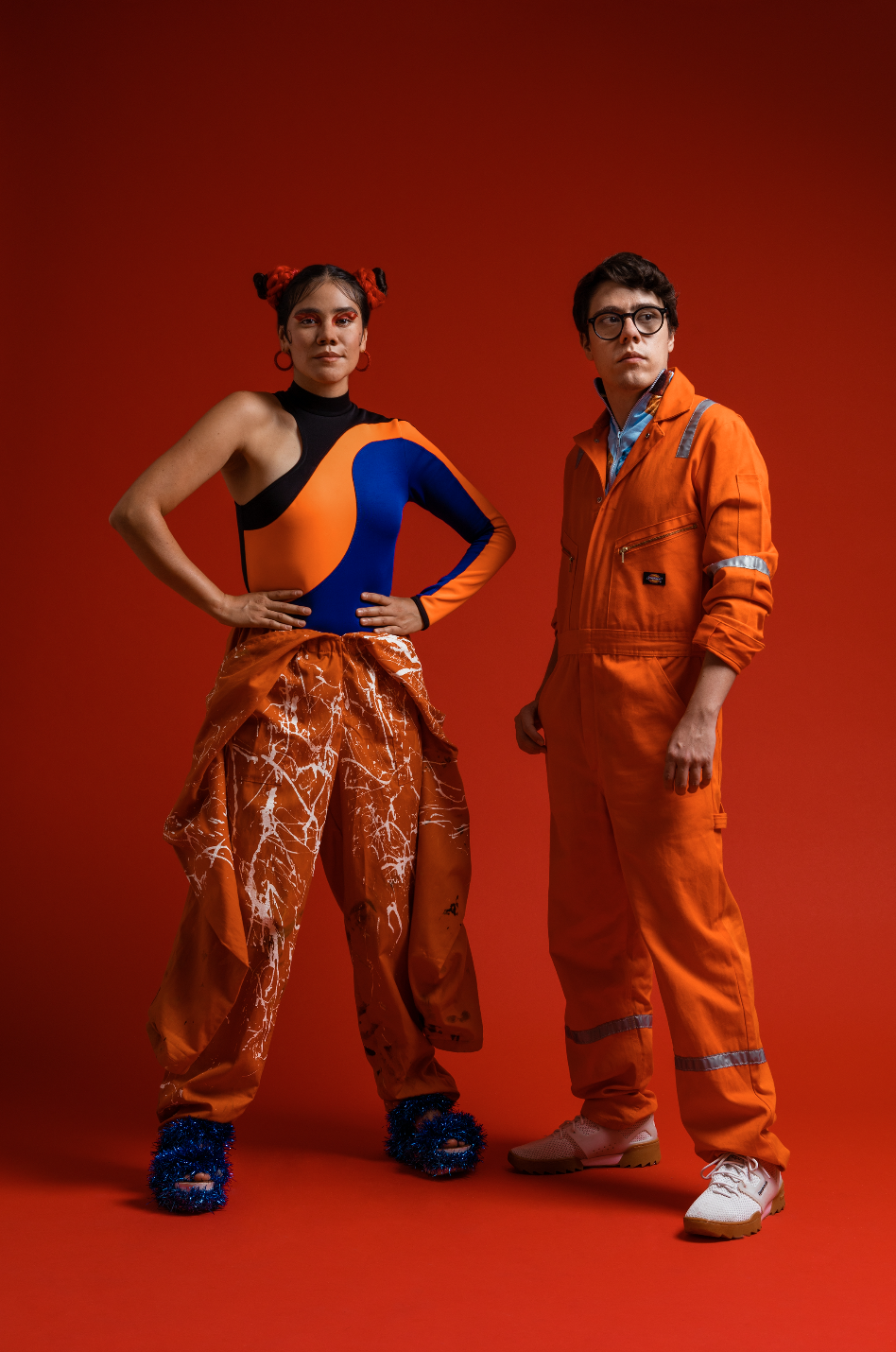"It marks the importance of Latin heritage."- Raul Sotomayor.You want to talk about a vibe check or a change of pace? Need new music to dance to? I got you. I will introduce you to the brother and sister duo known as Sotomayor, which is made up of Raul and Paulina Sotomayor. Last time we spoke to them was in 2018, after they played a show at the Lowbrow Palace in El Paso, Texas. Sotomayor is based in Mexico City and the two siblings had previous projects before fully embarking on this journey together. Orígenes marks their third studio album and it is very special. This album is special not only because of its look, but its invigorating and immersive sound. They also recently signed to Wonderwheel Recordings, a Brooklyn based boutique label, which really matches to their genre and essence. Somehow this album succeeds in magically blending dance hall, cumbia, dembow, and more. Esta chingon! It's truly meant to make you dance from beginning to end. I recently talked to Raul in order to discuss this new album, its challenges, and the music industry. The following phone call took place as follows: Ana Pao Calleros: Hello, how are you? First off, I love the album. So, Slang released an interview with you, which is titled "Sotomayor se enfrenta a una época en la que ser Latino está de moda" (Sotomayor faces an era in which being Latino is "in style") and you have a song titled "Latin History Month", what does that mean to you? Raul Sotomayor: Thank you so much. It's complicated. It's also something good. This kind of music took over everything, but mainstream "ate" it all. You know it's hard to compete with people like JBalvin or JLo or people pertaining to the genre in the mainstream realm. Actually, I chose to name it "Latin History Month". It matched a lot of the messages that Pau's lyrics had. The song itself was written during Black History Month and the last one to be made on the album. It's also one of my favorites. Ana Pao: It's one of my favorites too! I am aware that the process of making this album was different from the last two. Eduardo (a.k.a Visitante of Calle 13) produced it and had a "heavier hand" in making the album whereas you did that for the last two. How was that experience? I also heard that the process of this album started off with a lot of back and forth e-mails between you and Eduardo. Were you guys ever concerned with the process? Raul: What happened, as a difference to the previous two albums, is that I didn't have that much control over it. It was not made "on the box", so I couldn't work on it whenever or wherever. Eduardo is a busy person and this wasn't the only project he was working on at the moment. It took about a year and a half to finish. *side note: Raul mentioned that a lot that went into this album. Eduardo is from Puerto Rico and once him and Pau had a chance to go to Puerto Rico, that was when the album got finalized. For Raul, it was like working in a "reverse process" from what he is used to, but he is nonetheless grateful for the opportunity and for the learning experience. After all, Eduardo is a highly respected figure in the music industry. Ana Pao: I adore the album cover. Why did you guys choose this? Is there a reason for the color? Raul: The color was an artistic choice and we had a palette in mind. Funny enough, Tame Impala and Justin Bieber released an album that day and they also had red covers. We worked on this cover with Orlyanan. She has done a lot of work with different musicians like Bomba Estéreo and Lido Pimienta. We wanted a very "ancestral" look, but no specific attached meaning or look to the figures. Ana Pao: What are you looking forward to most on this tour? Raul: Trying to reach a wider audience. [With their style of music] doors have opened for us in places we had never imagined. It's important to showcase these sounds around the world. As a result, we are very well received. It marks the importance of Latin heritage. Ana Pao: Finally, I know you mentioned that this was a career of "resistance" and that the public can be "muy rough". What has been the biggest lesson you have learned in regards to making music? If you didn't make music, what would you do? Raul: I actually studied industrial design and I've always been drawn to music. It's hard to stay away (from music). I can't imagine it any other way. It's important to keep going. It doesn't matter if you think you have seen or done it all, you haven't. There is always room for more. As a final note, Raul and I talked about the music industry and its major changes. He invites everyone to give this album a chance. To go beyond just twenty seconds of listening to it. It's another reggaeton album, in its own right yet different than the "popular" stuff. We also talked about how simpler times we and that the introduction of Spotify brought the democratization of music. However, there are so many options that it can be overwhelming at times. Check out the links below to keep up with Sotomayor: open.spotify.com/album/3PPPsH0YlYCVx9XF8VagL9 www.instagram.com/sotomayor_music/?hl=en wonderwheelrecordings.bandcamp.com/album/or-genes
0 Comments
Leave a Reply. |
Banner by: dotdotjulio
Interviews and playlists of local bands and international artists.
Archives
April 2022
Categories
|




 RSS Feed
RSS Feed